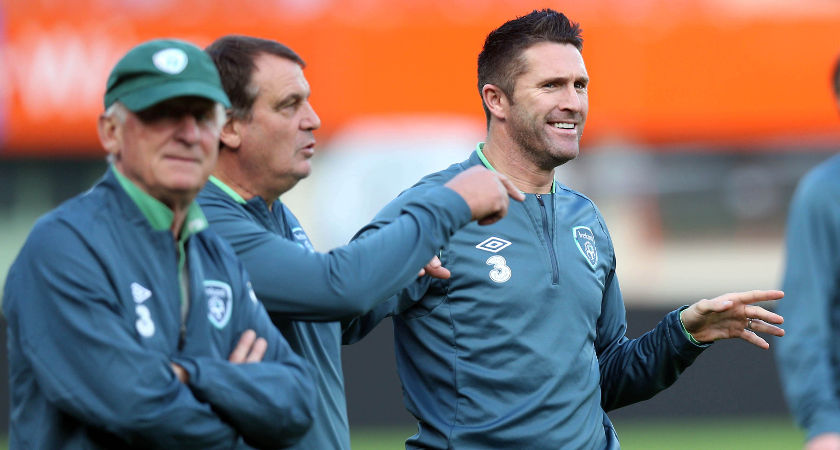AS a young lad, I was fascinated by Italian football.
The huge stadiums left over from Italia 90, half-filled with crazy, passionate fans intrigued me more than any other division in Europe.
And the football wasn’t bad either. Gabriel Batistuta; Alessandro Del Piero; Marcelo Salas; Ariel Ortega; Roberto Baggio; George Weah – it didn’t matter who was playing or where they were from, I loved it all.
In the days well before YouTube and the widespread availability of the internet, I had to be content with reading up on Liam Brady’s Serie A past through books and magazines.
‘Imagine an Irishman scoring a title-winning goal in his last act as a Juventus player’, I used to think, ‘that’ll never happen again’.
It still hasn’t, but when Robbie Keane joined Inter Milan from Coventry in 2000 on the back of a golden period of Italian football in the 1990s, he offered fresh hope.
I was filled excitement, joy and anticipation. This was the moment Robbie Keane became my hero.
Obviously, I was well aware of him as he’d already been an Ireland international for two years and turned heads with fine performances for Wolves and Coventry in England, but to go from that to the San Siro was mind blowing for me.
Robbie got off to a great start in Italy, lobbing legendary goalkeeper Angelo Peruzzi in the Italian Super Cup (their version of the Community Shield) against Lazio.
If my memory serves me correct, that goal made the opening credits of Channel 4’s Football Italia highlights programme that season, a must-see for me every Saturday morning during the 90s, followed by Sunday’s live game.
Sadly for Robbie, that was as good as it got in Italy. He did score two more goals – in the UEFA Cup and Coppa Italia – but his six Serie A appearances brought none.
He finished with just 14 appearances, scoring three times.
Keane’s short stint in Italy was brought to a premature end not out of failure, but because of a change in management at Inter.
The manager who brought him to Italy and used him regularly in the opening stages of the season, the iconic Marcello Lippi, was sacked after poor results, and the writing was on the wall for Keane thereafter.
Ironically, Lippi’s successor Marco Tardelli had no place for the young Irishman in the squad he inherited, but he would eventually go on to appreciate his worth as assistant to fellow Italian Giovanni Trapattoni, under whom Keane enjoyed his most prolific spell in an Ireland shirt.
Robbie returned to the Premier League with Leeds, and although I was a Liverpool fan underneath the love for Italian football, from there I watched his every move no matter what jersey he was wearing.
He’s always been a joy to watch, a scorer of all types of goals, a great user of his body to shield the ball and allow his exquisite footwork to prevail.
A reliable penalty taker and combative leader in his latter days, Keane has gone on to set the standard for Irish players abroad.
It’s a high standard, one that only his namesake Roy has also managed to reach as an Irishman in the Premier League era, arguably.
The timing of his retirement from international football is right – he’s 36 now and can only offer guidance and advice to younger players at this level – but I’m still sad to see him go.
If his 67 goals in an Ireland shirt is ever beaten (he may of course add to it against Oman), then we’ll have a hell of a player on our hands.
My favourite of those 67? Memorable as they are, not the late equaliser against Germany in the 2002 World Cup, nor the side-footer against France in that ill-fated play-off in Paris in 2009.
No, my favourite of his is the opening goal in the 2-2 draw against the might of Holland in Amsterdam in 2000.
To me, that was Robbie saying: ‘look at me, I’m a big-time Inter Milan player – we’re Ireland, and we’re going to the World Cup, not you’.
And so it proved.


